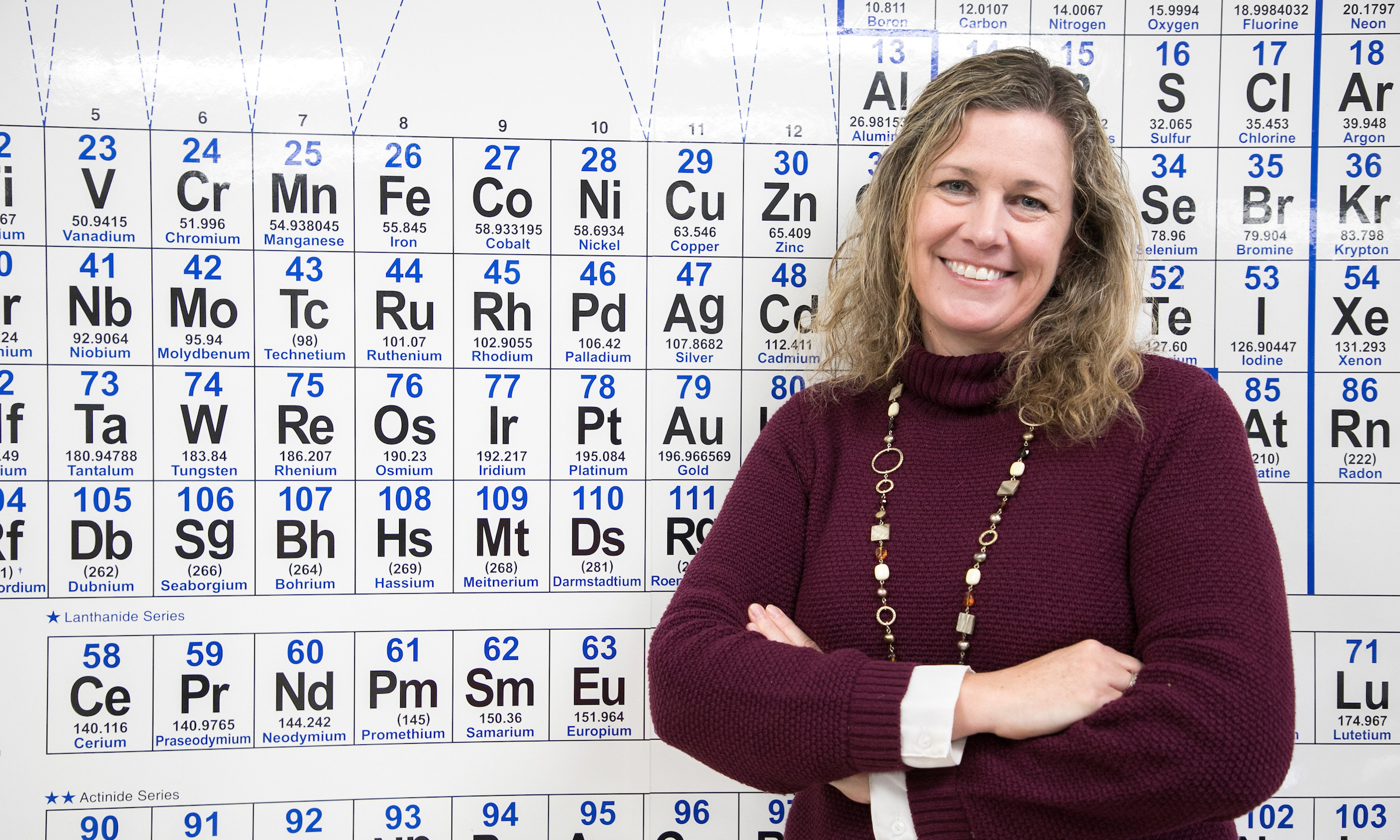
After completing a rigorous approval process that spanned nearly ten years of planning and building, Concordia University Wisconsin announces that its chemistry program is now approved by the American Chemical Society (ACS), the global leader in providing access to chemistry-related information and research.
“Our ACS approval means that decision-makers in businesses and graduate schools will have the confidence in knowing that our students are prepared with considerable exposure to chemical instrumentation and a rigorous chemistry curriculum,” says Katherine Bichler, Ph.D., professor of Chemistry and chair, Department of Physical Sciences. “The ACS approval will benefit our graduates throughout their careers in chemistry.”
Bichler joined CUW’s sciences faculty in 2008. She was attracted to the faith-based mission and was eager to be a part of the university’s plans to build a pharmacy school. At the time, chemistry was not a major at Concordia. Bichler and others in the sciences recognized the synergy between a strong science foundation and a successful health care program and they immediately advocated to academic administration for a full chemistry major. In 2010 the chemistry major was officially approved by the faculty.
“All along we designed our curriculum with ACS approval in mind,” confirms Bichler. “The ACS had recently updated their guidelines, so we were able to design our program to match the rigor and depth of those updated guidelines from the start.”
Bichler and her colleagues completed the extensive application process, presented to an ACS committee at an annual meeting, and hosted a team on a campus site visit. Along with the hard work of several faculty members, she credits Concordia’s administrative team for their solid commitment throughout the process.
“The sciences are an important part of a liberal arts education and are foundational in preparing students for professional careers in health care,” says Leah Dvorak, Ph.D., vice provost of Faculty Affairs. “This recognition by the ACS helps us recruit and retain top students and faculty not only in chemistry, but in all of Concordia’s science and health care programs.”
The science programs at Concordia have not just grown in status in recent years, they’ve also grown in enrollment. When Bichler started, only two sections of general chemistry lab were offered to students who were generally pursuing biology majors. Today, the department offers five or six lab sections in that course, prepares about a hundred students in a variety of academic programs, and graduates around five chemistry majors each year. A majority of the chemistry graduates continue their studies in pharmacy, medicine, and research.
“It is so important to us that we set our students up for successful careers,” says Bichler. “Our ACS approval is a competitive advantage for them wherever they pursue their professional callings.”
For more information about the Concordia chemistry program, visit Chemistry Program
About the American Chemical Society
The American Chemical Society, the world’s largest scientific society, is a not-for-profit organization chartered by the U.S. Congress. ACS is a global leader in providing access to chemistry-related information and research through its multiple databases, peer-reviewed journals and scientific conferences. ACS does not conduct research, but publishes and publicizes peer-reviewed scientific studies. Through its Publications Division, the Society publishes 50+ peer-reviewed journals and eBooks. ACS journals are among the most-cited, most-trusted and most-read within the scientific literature. The Publications Division offers high-quality service to authors and readers, including rapid time to publication, cutting-edge web and mobile delivery platforms and comprehensive open access options. The Society’s main offices are in Washington, D.C., and Columbus, Ohio.
—
If this story has inspired you, why not explore how you can help further Concordia's mission through giving.